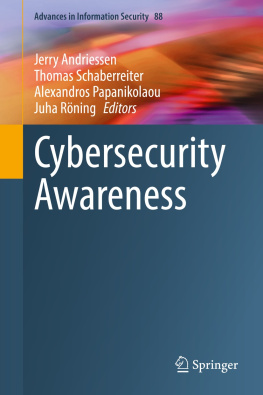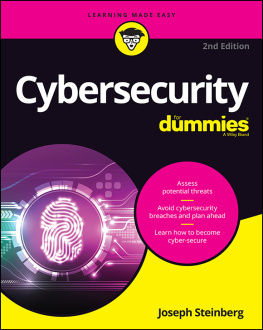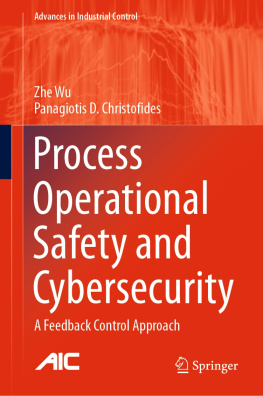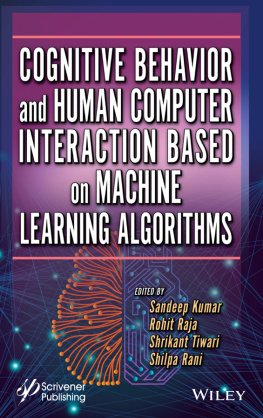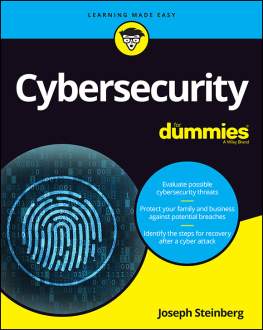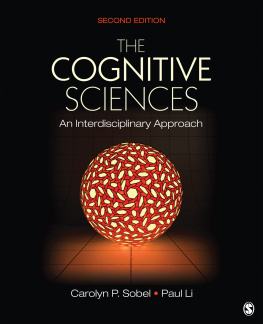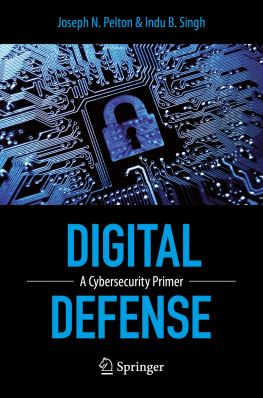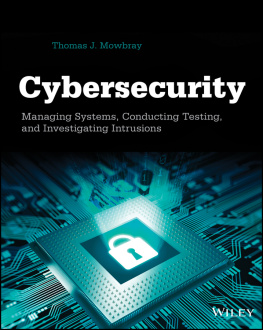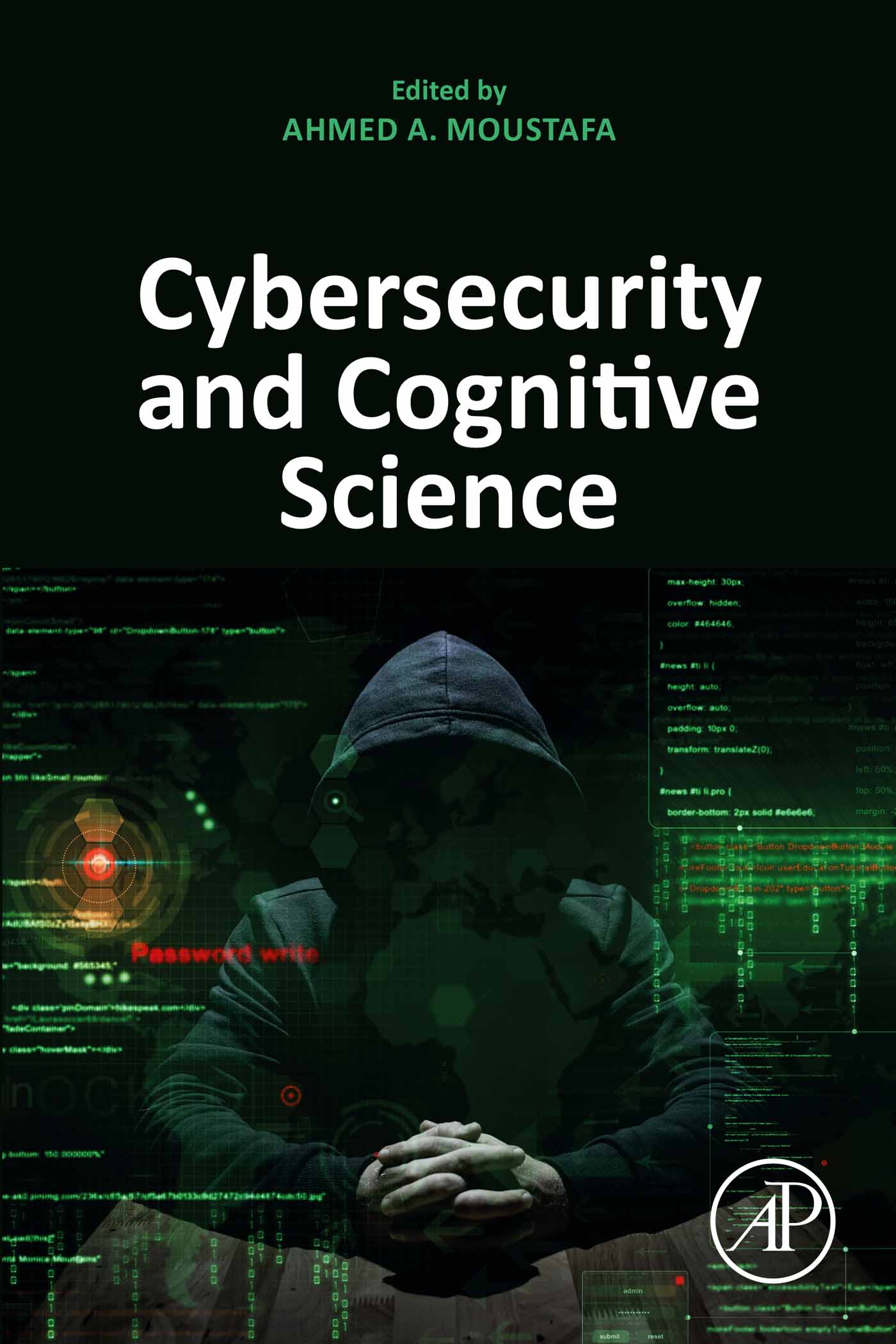Copyright
Academic Press is an imprint of Elsevier
125 London Wall, London EC2Y 5AS, United Kingdom
525 B Street, Suite 1650, San Diego, CA 92101, United States
50 Hampshire Street, 5th Floor, Cambridge, MA 02139, United States
The Boulevard, Langford Lane, Kidlington, Oxford OX5 1GB, United Kingdom
Copyright 2022 Elsevier Inc. All rights reserved.
No part of this publication may be reproduced or transmitted in any form or by any means, electronic or mechanical, including photocopying, recording, or any information storage and retrieval system, without permission in writing from the publisher. Details on how to seek permission, further information about the Publishers permissions policies and our arrangements with organizations such as the Copyright Clearance Center and the Copyright Licensing Agency, can be found at our website: www.elsevier.com/permissions.
This book and the individual contributions contained in it are protected under copyright by the Publisher (other than as may be noted herein).
Notices
Knowledge and best practice in this field are constantly changing. As new research and experience broaden our understanding, changes in research methods, professional practices, or medical treatment may become necessary.
Practitioners and researchers must always rely on their own experience and knowledge in evaluating and using any information, methods, compounds, or experiments described herein. In using such information or methods they should be mindful of their own safety and the safety of others, including parties for whom they have a professional responsibility.
To the fullest extent of the law, neither the Publisher nor the authors, contributors, or editors, assume any liability for any injury and/or damage to persons or property as a matter of products liability, negligence or otherwise, or from any use or operation of any methods, products, instructions, or ideas contained in the material herein.
ISBN 978-0-323-90570-1
For information on all Academic Press publications visit our website at https://www.elsevier.com/books-and-journals

Publisher: Nikki P. Levy
Acquisitions Editor: Joslyn Chaiprasert-Paguio
Editorial Project Manager: Barbara L. Makinster
Production Project Manager: Omer Mukthar
Cover Designer: Christian J. Bilbow
Typeset by STRAIVE, India
Contributors
Palvi Aggarwal Department of Computer Science, The University of Texas at El Paso, El Paso, TX, United States
Micheline Al Harrack Faculty of Computing and Information Technology, King Abdulaziz University, Jeddah, Saudi Arabia
Hany Alashwal College of Information Technology, United Arab Emirates University, Abu Dhabi, United Arab Emirates
Prashant Anantharaman Department of Computer Science, Dartmouth College, Hanover, NH, United States
Annika Andreasson KTH Royal Institute of Technology, Stockholm, Sweden
Henrik Artman
KTH Royal Institute of Technology
FOI Swedish Defence Research Agency, Stockholm, Sweden
Adham Atyabi Department of Computer Science, University of Colorado Colorado Springs, Colorado Springs, CO, United States
Abubakar Bello Cyber Security and Behaviour, School of Social Sciences, Western Sydney University, Sydney, NSW, Australia
Shada Bennbaia Department of Mechanical Engineering, College of Engineering, Qatar University, Doha, Qatar
Lucy R. Betts Department of Psychology, Nottingham Trent University, Nottingham, United Kingdom
Samuela Bolgan Department of General Psychology, University of Padova, Padova, Italy
Joel Brynielsson
KTH Royal Institute of Technology
FOI Swedish Defence Research Agency, Stockholm, Sweden
Ferhat Ozgur Catak Department of Electrical Engineering and Computer Science, University of Stavanger, Stavanger, Norway
Anthony An Duong School of Social Sciences, Western Sydney University, Sydney, NSW, Australia
Varun Dutt Applied Cognitive Science Laboratory, Indian Institute of Technology Mandi, Kamand, India
Mark Evans School of Computer Science and Informatics, De Montfort University, Leicester, United Kingdom
Ulrik Franke
KTH Royal Institute of Technology, Stockholm
RISE Research Institutes of Sweden, Kista, Sweden
Ying He School of Computer Science, University of Nottingham, Nottingham, United Kingdom
Helge Janicke Cyber Security Cooperative Research Centre, Joondalup, WA, Australia
Harsh Katakwar Applied Cognitive Science Laboratory, Indian Institute of Technology Mandi, Kamand, India
Blerina Kellezi Department of Psychology, Nottingham Trent University, Nottingham, United Kingdom
Vijay H. Kothari Department of Computer Science, Dartmouth College, Hanover, NH, United States
Peter J.R. Macaulay School of Psychology, University of Derby, Derby, United Kingdom
Leandros Maglaras School of Computer Science and Informatics, De Montfort University, Leicester, United Kingdom
Zahid Maqbool Applied Cognitive Science Laboratory, Indian Institute of Technology Mandi, Kamand, India
Alana Maurushat School of Social Sciences, Western Sydney University, Sydney, NSW, Australia
Alex V. Mbaziira College of Business, Innovation, Leadership and Technology, Marymount University, Arlington, VA, United States
John McAlaney Department of Psychology, Bournemouth University, Poole, United Kingdom
Rosana Montaez Department of Computer Science, University of Texas at San Antonio, San Antonio, TX, United States
Ahmed A. Moustafa
School of Psychology, Faculty of Society and Design, Bond University, Gold Coast, Queensland, Australia
Department of Human Anatomy and Physiology, the Faculty of Health Sciences, University of Johannesburg, South Africa
V.S. Chandrasekhar Pammi Centre of Behavioral and Cognitive Sciences, University of Allahabad, Allahabad, India
Veronica Power School of Social Sciences, Western Sydney University, Sydney, NSW, Australia
Elena Rusconi
Department of Psychology and Cognitive Science, University of Trento, Rovereto
Centre of Security and Crime Sciences, University of Trento and University of Verona, Trento, Italy
Maha F. Sabir Faculty of Computing and Information Technology, King Abdulaziz University, Jeddah, Saudi Arabia
Sean W. Smith Department of Computer Science, Dartmouth College, Hanover, NH, United States
James Stiller Department of Psychology, University of Chichester, Chichester, United Kingdom
Devrim Unal
KINDI Center for Computing Research
Department of Mechanical Engineering, College of Engineering, Qatar University, Doha, Qatar
Shashank Uttrani Applied Cognitive Science Laboratory, Indian Institute of Technology Mandi, Kamand, India
Stefan Varga
KTH Royal Institute of Technology
Swedish Armed Forces Headquarters, Stockholm, Sweden
Niklas Vilhelm
KTH Royal Institute of Technology, Stockholm, Sweden
Norwegian National Security Authority, Sandvika, Norway
Jennifer Wagner School of Applied Sciences, Abertay University, Dundee, United Kingdom
Shouhuai Xu Department of Computer Science, University of Colorado Colorado Springs, Colorado Springs, CO, United States
Part I
Social engineering, security, and cyber attacks
Chapter 1: Social engineering attacks and defenses in the physical world vs. cyberspace: A contrast study


